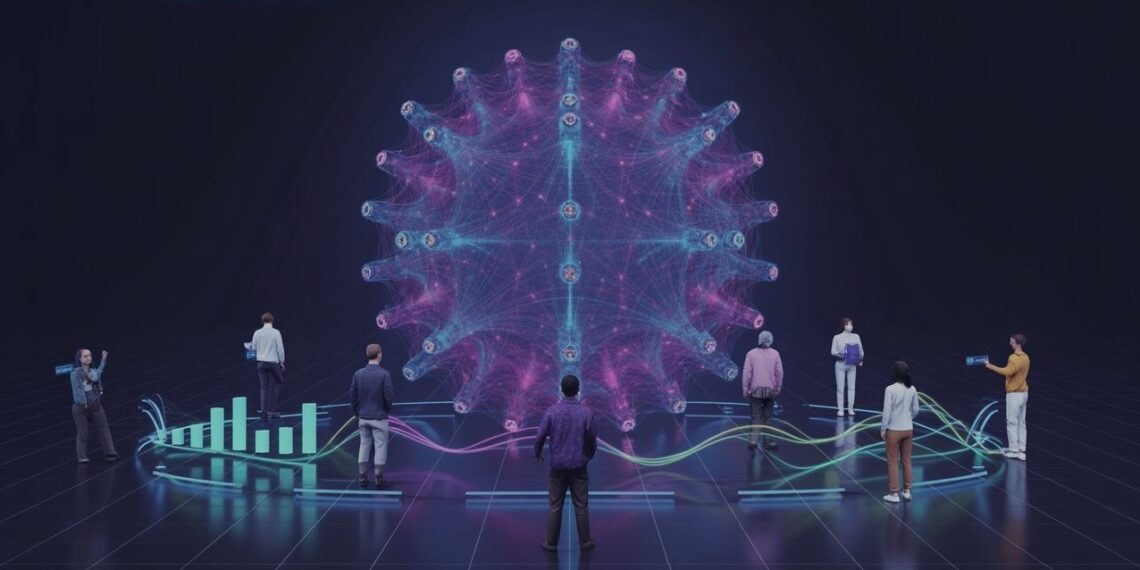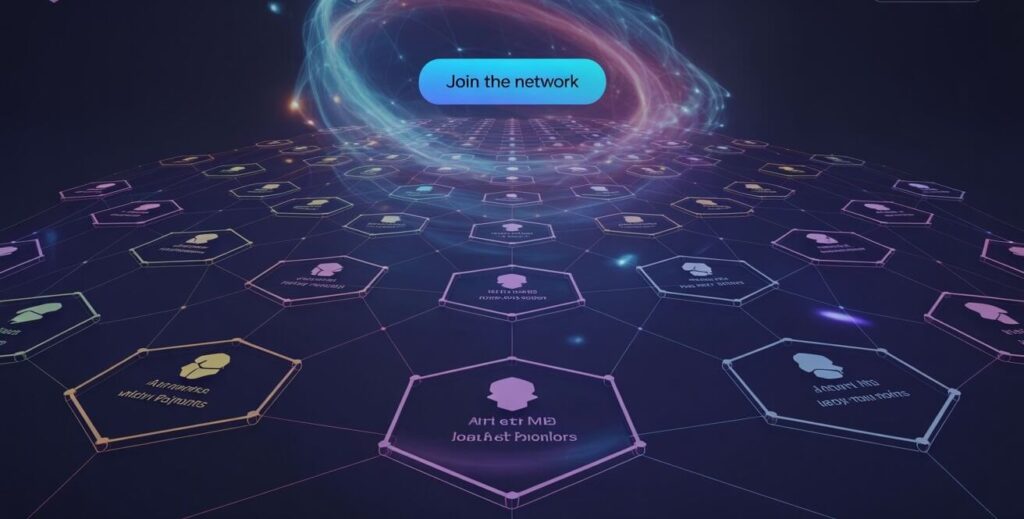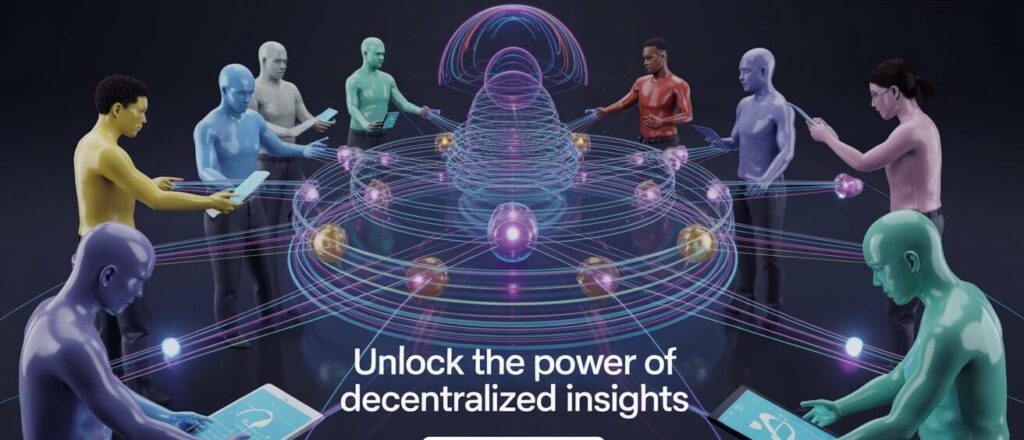Artificial Intelligence is transforming every sector, from healthcare to finance to social media. But there’s a hidden truth most people overlook: AI is only as good as the data it’s trained on. The accuracy, fairness, and performance of AI models depend heavily on how data is collected, labeled, and interpreted.
Enter Alaya AI a revolutionary decentralized platform that merges blockchain technology, AI, and crowdsourced human intelligence to reshape how datasets are built, labeled, and monetized. At a time when data privacy, scalability, and quality are more critical than ever, Alaya AI offers a new blueprint for the future of artificial intelligence.
What Is Alaya AI?
Alaya AI is a Web3-powered decentralized data collection and labeling platform designed to democratize the data ecosystem. It enables individuals to contribute, verify, and label data through a gamified, reward-based system all while ensuring transparency, ownership, and scalability.
Unlike traditional AI training pipelines, which rely on centralized entities and opaque data sourcing, Alaya empowers users across the globe to participate in the AI lifecycle from data generation to model refinement.
In essence, Alaya AI is building the infrastructure for a user-owned data economy.
The Problem With Traditional AI Data Pipelines
AI’s capabilities are only as powerful as the data behind it. But today’s mainstream systems face several bottlenecks:
1. Centralization and Control
Big Tech companies dominate the AI data landscape. They control massive datasets and proprietary labeling systems, giving them unfair leverage over innovation.
2. Data Bias and Poor Representation
Many datasets are skewed toward specific demographics or geographies. This results in biased models and unfair AI decision-making.
3. Limited Access to Quality Data
Small and mid-sized companies struggle to access high-quality, well-labeled data due to cost and scarcity.
4. Lack of User Ownership
Users generate data daily through photos, reviews, social interactions yet they rarely profit from it. Their contributions feed the AI engines of large platforms without consent or compensation.
Alaya AI is designed to solve all of these problems.
How Alaya AI Works
At the heart of Alaya AI is a community-driven ecosystem where participants are rewarded for data-related tasks. Here’s how the platform functions:
1. Decentralized Data Collection
Anyone can contribute raw data images, audio, video, text through the Alaya platform. These contributions are verified by a distributed network of users to maintain data quality and integrity.
2. AI-Powered Quality Control
Alaya leverages intelligent agents and in-house AI models to pre-screen, classify, and analyze data for errors or inconsistencies, significantly reducing human workload.
3. Data Labeling as a Gamified Task
Users are incentivized to label datasets (e.g., identifying objects in images or classifying speech). Gamified interfaces make the process fun, while smart contracts ensure transparent reward distribution.
4. Rewards Through Tokens
Participants earn platform-specific tokens or cryptocurrencies for every valuable action such as uploading data, validating others’ work, or completing labeling tasks.
5. Blockchain for Verification and Ownership
Every action is recorded on the blockchain, ensuring that data contributions are verifiable, tamper-proof, and traceable to their origin. This means users retain control over their contributions and how they are used.
Key Features That Set Alaya AI Apart
Unlike traditional data platforms or even other Web3 projects, Alaya AI introduces several groundbreaking features:
Decentralization at Every Level
From data sourcing to rewards, every aspect of Alaya’s system removes the need for central authority. This enhances transparency, fairness, and scalability.
Gamified User Experience
By introducing elements of gaming such as points, badges, and leveling up Alaya keeps users engaged and encourages higher-quality contributions.
AI + Human Synergy
Alaya uses AI to guide and filter user contributions, ensuring a hybrid system that combines the speed of machines with the nuance of human intelligence.
Global Community Participation
Unlike traditional data labeling firms that rely on a closed workforce, Alaya opens the door to a global network of contributors, from casual users to experts.
Privacy-First Design
Users retain control over their data, including permission management and traceability. Nothing gets used without consent.
Real-World Use Cases of Alaya AI
Alaya AI isn’t just theoretical. It has wide-ranging applications across industries:
AI Startups
Startups often struggle with data scarcity. Alaya offers access to crowdsourced, diverse, and verified datasets for training machine learning models.
eCommerce & Social Commerce
Retailers can use Alaya to collect user-generated content and reviews that are pre-labeled and categorized for recommendation systems.
Healthcare
With patient consent, anonymized health data can be gathered, labeled, and used for disease detection models, reducing bias and improving accuracy.
Language & Speech Recognition
Alaya allows for multi-lingual voice data collection and labeling, addressing a major gap in underrepresented languages.
Why Alaya AI Is a Game-Changer
The rise of decentralized data economies is inevitable. As users demand more control and compensation for their contributions, platforms like Alaya will define the next era of AI development.
Here’s what makes it revolutionary:
-
It transforms passive data consumers into active data stakeholders.
-
It introduces trust, transparency, and traceability into the AI pipeline.
-
It empowers developers, businesses, and users alike, not just tech giants.
-
It brings cultural, geographical, and linguistic diversity into AI training data.
This shift is not just technological it’s philosophical and ethical. It redefines who owns data, who benefits from it, and how intelligence systems are shaped.
Challenges Ahead
As promising as Alaya AI is, the road ahead isn’t without challenges:
-
Scalability: Can the system handle millions of contributors and data points in real time?
-
Data Quality Control: Despite AI screening, how can Alaya ensure that user-submitted data maintains high labeling accuracy?
-
User Education: Will mainstream users understand how to engage meaningfully with the platform?
-
Regulatory Compliance: Handling sensitive data across jurisdictions could trigger legal complexities.
That said, these are common hurdles for any emerging tech and Alaya’s hybrid model of AI + community gives it a robust starting point.
The Future of Alaya AI
Alaya AI is still evolving, but the trajectory is clear. The platform is positioning itself at the intersection of:
-
Web3
-
Decentralized economies
-
Community-driven AI
-
Ethical data sourcing
As data becomes the new currency of the digital world, platforms like Alaya will play a central role in redefining value exchange where users aren’t just products, but active participants in the AI economy.
Expect to see more integrations, open-source collaborations, and possibly partnerships with AI labs and decentralized autonomous organizations (DAOs) in the near future.
Final Thoughts
The rise of Alaya AI marks a critical turning point in the AI landscape. It challenges long-held assumptions about who creates value, who controls data, and how intelligence should be trained.
By building a platform that combines decentralization, gamification, AI automation, and fair incentives, Alaya is not just building tools it’s creating an ecosystem.











